
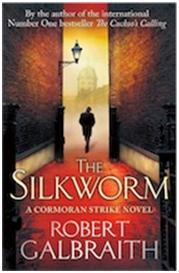 I have a small but select list of authors that are good for comfort reading. Robert Galbraith (aka J K Rowling) has become a member of this elite club. To qualify for this club, an author must write books which are good reads, good enough to be worthy of a second or even a third reading. Also, the book must have a good story, well told, and be pleasurable to read. This book ticks all the boxes. It was a good port of refuge as I struggle through The Narrow Road to the Deep North.
I have a small but select list of authors that are good for comfort reading. Robert Galbraith (aka J K Rowling) has become a member of this elite club. To qualify for this club, an author must write books which are good reads, good enough to be worthy of a second or even a third reading. Also, the book must have a good story, well told, and be pleasurable to read. This book ticks all the boxes. It was a good port of refuge as I struggle through The Narrow Road to the Deep North.
The Silkworm follows on The Cuckoo's Calling with its unlikely pair of detectives, Cormoran Strike and Robin. Lurking in the background is Matthew, Robin's cross, unimaginative and slightly jealous fiancé who Robin is shortly due to marry. Love interest between Cormoran and Robin? None, Cormoran is still in love with Caroline, the unstable beauty, Charlotte, who dumped him in The Cuckoo's Calling. And Robin does love Matthew, whatever his failings.
So what is the book about – a detective story, and like all good detective stories, there is a body and a race against time to clear the prime suspect's name. There is a theme, and this time Galbraith has set the story against the backdrop of the bizarre work of publishing.
A good novel should take you out of your comfort zone and open your eyes to a different world. I now know more about a certain type of literature that I would never consider reading, the gothic sex/horror novel. Galbraith has populated the novel with a memorable cast of characters; there is the transgender girl/boy, the grotesque literary agent, the predictable police detective, the very peculiar publisher. There two characters which really stand out for me are Leonora Quine, the wife of the victim, and the daughter, Orlando. Orlando is twenty-five, has significant learning difficulties and lives at home, sadly now just with her mum. Leonora is brilliantly drawn; a woman who can be dismissed by a few lines as thin, grey, mousy, few social graces. And yet. Leonora, seemingly totally unimaginative, focused on what she and her daughter now need for survival has to be respected. Even under the greatest pressure, she does not crumble. Arrested and imprisoned for a crime she did not commit, Orlando, her vulnerable daughter, is still her concern. There is no room for displays of grief in Leonora's world, for she is there to provide predictability and normality for her family. For years she had been the wife of Owen, a flamboyant and imaginative author. Whatever his latest mistress thought, Owen would not have left his wife and daughter. His home was where his typewriter was, and hi study and those domestic routines that allowed him to write.
Do we see something here about Rowling/Galbraith's view on relationships? That volatile, interesting relationships are not sustainable, what sustains a relationship and thereby marriage is love, concern, friendship, loyalty, affection – the qualities that are there in the relationship between Robin and Matthew but were never present between Cormoran and Charlotte?
This book is a great read.
The Silkworm (Cormoran Strike)


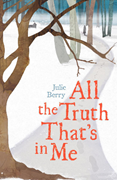 I loved the way the story is told in this book.
I loved the way the story is told in this book.


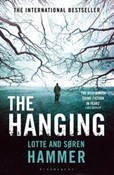

 s
s
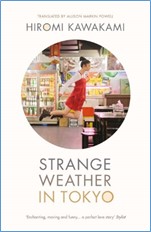 What a strange story. A story of the romance between a high school teacher and a former pupil. A story of the relationship between two drinking partners and their love of food. A story of how a friendship between two lonely single people blossoms into a very touching romance. And a story of our mortality. Forget about the vaporous flights of fancy of Bridget Jones. Tsukiko is a Japanese woman fast approaching 40. The Japanese career has consumed Tsukiko's life. Throughout the book, we do not meet any of her friends, the girlfriends that support single women. The closest thing to a friend that we are introduced to is the occasional boyfriend Kojima, a former classmate. Kojima loses out in the end to the old school teacher, Sensei.
What a strange story. A story of the romance between a high school teacher and a former pupil. A story of the relationship between two drinking partners and their love of food. A story of how a friendship between two lonely single people blossoms into a very touching romance. And a story of our mortality. Forget about the vaporous flights of fancy of Bridget Jones. Tsukiko is a Japanese woman fast approaching 40. The Japanese career has consumed Tsukiko's life. Throughout the book, we do not meet any of her friends, the girlfriends that support single women. The closest thing to a friend that we are introduced to is the occasional boyfriend Kojima, a former classmate. Kojima loses out in the end to the old school teacher, Sensei.



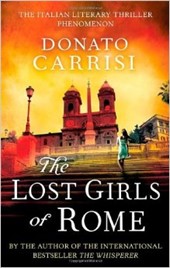 Initially I bought this as an audio book because Audible ad a two for one offer. But I eventually succumbed to buying a Kindle version as well. As an audio book it was difficult to listen too, especially when driving. It starts off as two separate stories, completely unconnected, and then a third story is added later in the book. So now we have the story of Marcus, a man with no memory investigating the disappearance of Lara an architecture student, the story of Sandra, who is trying to find out why her husband died 6 months previously and the story of the hunter, a man with no name on the trail of "The Transformist", a mysterious serial killer. Some reviewers have likened the work to that of Dan Browne, but this does it a great injustice. OK, so there is a secret society, the Penitenzeri. Very Dan Browne. A society dedicated to documenting evil, and whose members are Roman Catholic priests. But this is a dying society, phased out by the modern Church. All that remains are a few individuals. Not very Dan Browne, for Mr Browne wants the Church to remain as a mythical superpower of evil.
Initially I bought this as an audio book because Audible ad a two for one offer. But I eventually succumbed to buying a Kindle version as well. As an audio book it was difficult to listen too, especially when driving. It starts off as two separate stories, completely unconnected, and then a third story is added later in the book. So now we have the story of Marcus, a man with no memory investigating the disappearance of Lara an architecture student, the story of Sandra, who is trying to find out why her husband died 6 months previously and the story of the hunter, a man with no name on the trail of "The Transformist", a mysterious serial killer. Some reviewers have likened the work to that of Dan Browne, but this does it a great injustice. OK, so there is a secret society, the Penitenzeri. Very Dan Browne. A society dedicated to documenting evil, and whose members are Roman Catholic priests. But this is a dying society, phased out by the modern Church. All that remains are a few individuals. Not very Dan Browne, for Mr Browne wants the Church to remain as a mythical superpower of evil.


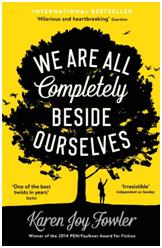 OK, so I was supposed to be listening to "The Narrow Road to the Deep North" on my daily commute. A worthy book, but definitely one for the chaps I think. I feel sort of guilty abandoning it in favour of this book. But it was such a relief to listen to a light-hearted narrator. Although I know, from reading other reviews, "we are all completely beside ourselves" is not really a light hearted romp, but is in fact a lot more serious. And I do wish I hadn't read all those reviews for I now have some expectations. But still. So far, this is a really good book to listen to while driving. This promises to be a "cracking good read".
OK, so I was supposed to be listening to "The Narrow Road to the Deep North" on my daily commute. A worthy book, but definitely one for the chaps I think. I feel sort of guilty abandoning it in favour of this book. But it was such a relief to listen to a light-hearted narrator. Although I know, from reading other reviews, "we are all completely beside ourselves" is not really a light hearted romp, but is in fact a lot more serious. And I do wish I hadn't read all those reviews for I now have some expectations. But still. So far, this is a really good book to listen to while driving. This promises to be a "cracking good read".

 I have a small but select list of authors that are good for comfort reading. Robert Galbraith (aka J K Rowling) has become a member of this elite club. To qualify for this club, an author must write books which are good reads, good enough to be worthy of a second or even a third reading. Also, the book must have a good story, well told, and be pleasurable to read. This book ticks all the boxes. It was a good port of refuge as I struggle through The Narrow Road to the Deep North.
I have a small but select list of authors that are good for comfort reading. Robert Galbraith (aka J K Rowling) has become a member of this elite club. To qualify for this club, an author must write books which are good reads, good enough to be worthy of a second or even a third reading. Also, the book must have a good story, well told, and be pleasurable to read. This book ticks all the boxes. It was a good port of refuge as I struggle through The Narrow Road to the Deep North.

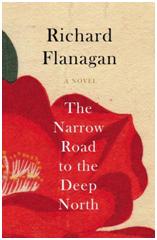 Normally I would not read (or listen to) a book like this as it is far from my comfort zone, centring as it does on the construction of the Thailand Burma railway by the Japanese combined with the romantic liaisons of the main character. And it is the winner of the man Booker Prize 2014. Somehow, the prize seems to be won by difficult books that can only be read by enthusiasts, selected by experts, and I just do not have that literary background. OK – so I have actually read some of the other books that have won, and enjoyed them – such as the Life of Pi and Mantel's Wolf Hall.
Normally I would not read (or listen to) a book like this as it is far from my comfort zone, centring as it does on the construction of the Thailand Burma railway by the Japanese combined with the romantic liaisons of the main character. And it is the winner of the man Booker Prize 2014. Somehow, the prize seems to be won by difficult books that can only be read by enthusiasts, selected by experts, and I just do not have that literary background. OK – so I have actually read some of the other books that have won, and enjoyed them – such as the Life of Pi and Mantel's Wolf Hall.

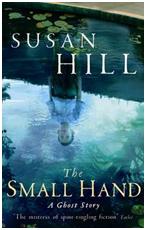 Dear reader, just a warning. If you have not read the book and/or seen the play and you wish to do so, then read no further. A ghost story needs suspense and knowing what will happen removes that suspense.
Dear reader, just a warning. If you have not read the book and/or seen the play and you wish to do so, then read no further. A ghost story needs suspense and knowing what will happen removes that suspense.